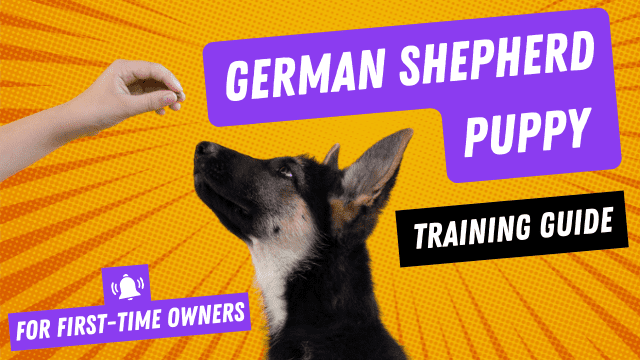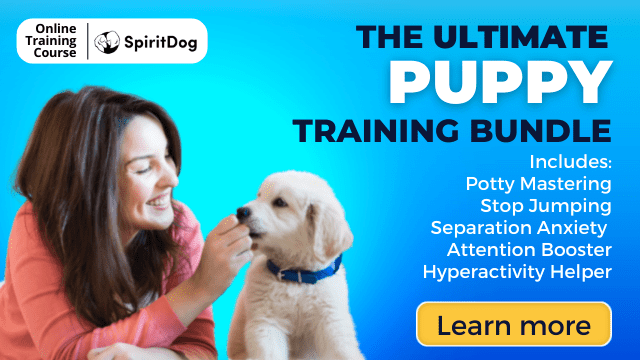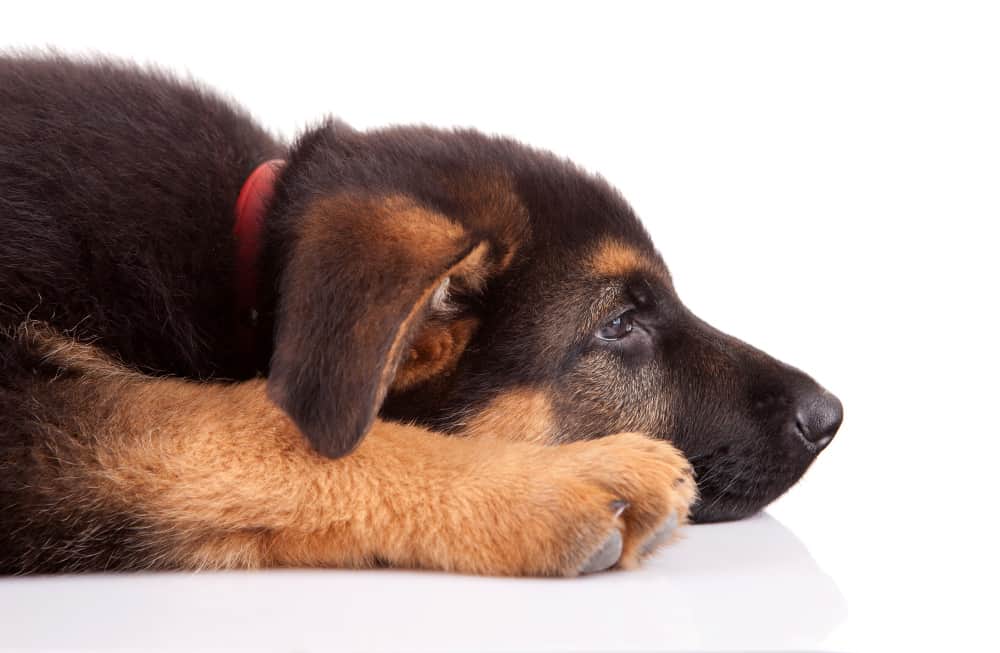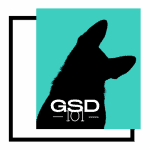
Welcome to the world of German Shepherds! Puppy training is an integral part every new owner should not ignore. The thing is there’s too much information out there and it’s a bit intimidating to know where to start.
- At what age should I begin training my puppy?
- What should I teach my puppy first?
- Is it ok to crate my pup overnight?
- What are the basic commands every puppy must learn?
- How to motivate my puppy?
If you have asked these questions, you are in the right place.
How to use this training guide?
This training guide is our best effort in compiling a collection of training resources for any new GSD owner to kick-start training a new puppy – without wasting your time searching forever online.
Whether you are preparing to get a puppy or has just brought a puppy home, this guide will be useful and handy along the way.
Most sessions will be accompanied by video(s). Some sessions have suggested reading materials for those of you who want to learn a bit more. It is reasonable for your GSD puppy to master all the skills within 2-3 months.
Every dog is different, some learn faster than others. And all you need is patience, consistency, and a lot of positive reinforcement. Keep that in mind.
Here is a list of 7 parts of the training we suggest for beginners:
For serious owners only: If you want to master potty training, stop jumping, and everything a new dog owner needs to teach their dog, check out The Ultimate Puppy Training Bundle by SpiritDog.

When should I start training my GSD puppy?
You can start training your German Shepherd puppies as early as they are 8 weeks old.
Crate training and potty training are the very basic skills your puppy will need once she gets home. You can start right away when she comes home. (usually at 8 weeks old)
In fact, it’s so easy to train them you have to remember that you’re always training—whether you think you are or not.
How is it different to train German Shepherds?
German Shepherds are very intelligent and they learn fast. This makes training very easy.
Many GSDs are play-motivated in addition to food-motivated, which makes it very easy to train new behaviors with a toy or ball as the reward.
“If you think a dog is stubborn he’s probably smarter than you are.”
What this means is, if you think a dog is “stubborn” then you’ve either not doing it right or you just need more patience.
Timing is VERY important
If you want to reward your puppy for doing the right thing, you must do it right after she exhibits the desired behavior. If it’s given at a later time, the dog may not be able to associate the praise with that behavior.
For instance, you should praise her by saying “Yes!” in an excited tone, then follow by giving her the treat as a reward for doing something you want her to do.
It is therefore extremely important to have your reward (treat or ball) ready in your pocket so you can give it to your pup immediately.
While you give your puppy the treat, you teach her that the signal “Yes” means “correct behavior – the rewards are on the way!”
When your puppy learns that the treat will come after the word “Yes”, it does not matter as much that it takes a few more seconds before it receives its reward.

Rule of thumb: Keep training sessions short
After all, your puppy (8-10 weeks old) is still a young child at this age. She has a limited attention span and may get distracted easily.
It is suggested that you train your puppy the same trick several times a day, repeating 8-10 times in each session, preferably 5-10 minutes each time (even shorter sessions puppies).
Three Types Of Rewards
Praise and reward work best for motivating your German Shepherd puppy. Your pup will quickly learn what she needs to do to please you.
Voice
Always praise your puppy with a lively and happy voice when she does something right.
Treats
Treats are essential when it comes to training a dog. It works especially well with food-motivated puppies.
Playing or Petting
If your dog is not food-motivated, you can reward them with their favorite toy or petting as an alternative.
When you first started, you may need to try on different treats based to see which one your pup likes. The treats should be in bite-size and easy for your pup to chew. Cheese cubes, cooked chicken, or small bread cubes are quite popular with young puppies.
To further motivate your pup, you may also like to have different kinds of treats in one training session. This will keep your puppy looking for more.
What to Expect?
Not only will these training sessions prepare your puppy to exhibit the desired manner, you will also take advantage of the time spent bonding with her. The more you practice with your puppy, the better and faster your puppy will learn.
There will be accidents and at times your puppy may just turn around from you. That’s the learning process. After all, she is only a baby, you need to give her love and patience.
Are you ready? Let’s go!





